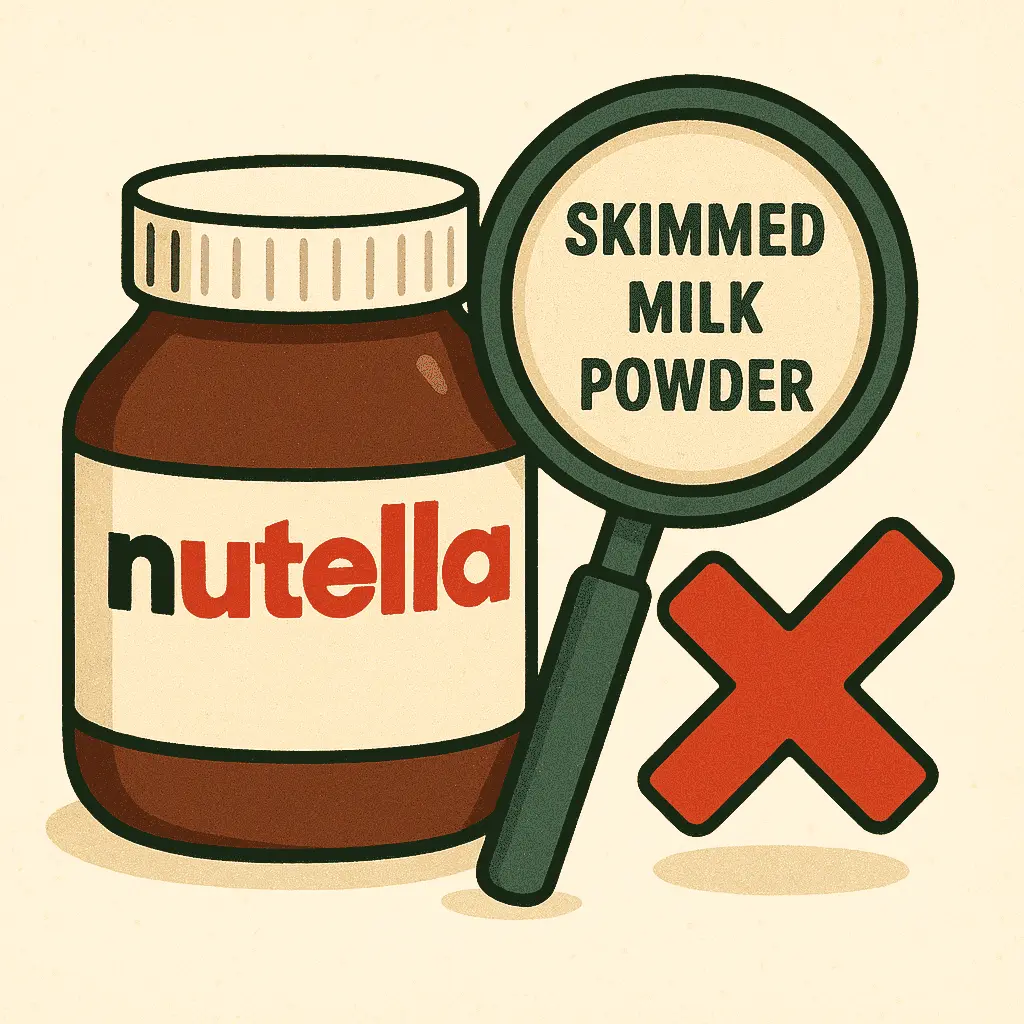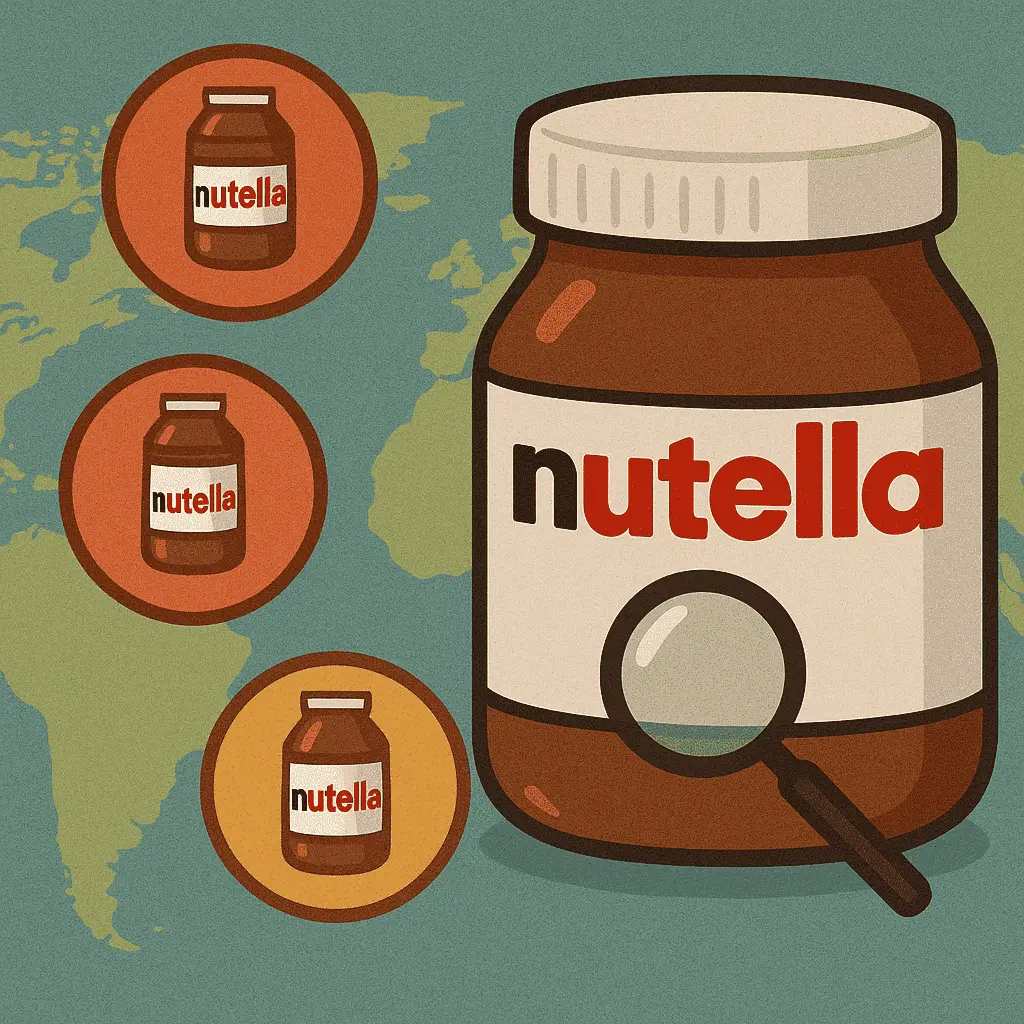Is Nutella Vegan? A Deep Dive into Ingredients and Ethics
Nutella's creamy allure has captivated many, but is it suitable for a vegan lifestyle? This article explores its ingredients and the ethical concerns surrounding it.

Understanding Nutella's Core Ingredients
Nutella is a globally beloved hazelnut spread, often praised for its unique flavor and creamy texture. At its core, Nutella's taste is crafted from a blend of sugar, palm oil, hazelnuts, cocoa solids, skimmed milk powder, and emulsifiers. The presence of skimmed milk powder is an immediate red flag for those adhering strictly to a vegan diet.
The primary ingredients—hazelnuts and cocoa—are plant-based and align with vegan principles. However, the inclusion of skimmed milk powder means Nutella does not qualify as vegan by most standards. Ferrero, Nutella's manufacturer, has confirmed that this dairy component is integral to the product's creamy consistency.
For those striving for vegan alternatives, understanding these ingredients is essential. While hazelnuts and cocoa represent vegan-friendly components, the challenge lies in identifying substitutes for the milk powder that do not compromise texture or taste.
The Dairy Dilemma: Why Nutella Isn't Vegan
Dairy in Nutella is primarily present in the form of skimmed milk powder. This ingredient is derived from cow's milk, making it unsuitable for vegans who avoid all animal products. The inclusion of milk establishes Nutella as non-vegan by default.
Some might argue for a more flexible vegan diet, where trace quantities of dairy might be overlooked. However, for strict vegans, even the smallest amount of dairy is a dealbreaker. The fact that Nutella prominently features this ingredient further cements its non-vegan status.
The presence of dairy also raises questions about lactose intolerance and dietary restrictions. While the amount of lactose might be minimal, those with severe lactose intolerance should be cautious. Lactose intolerance is common, and products like Nutella could trigger symptoms despite being tasty and appealing.
Additionally, some consumers might consider the environmental impact of dairy farming, which is significant. Dairy farming's impact on the environment through greenhouse gas emissions and land use is a growing concern for environmentally-conscious consumers.
In summary, the dairy content in Nutella is a critical factor for vegans and those with specific dietary needs, making it essential to review ingredient labels closely.

Ethical Concerns: Beyond Ingredients
Ethical considerations extend beyond ingredients to encompass the broader impact of production and sourcing practices. Nutella contains palm oil, a controversial ingredient due to its link to deforestation and habitat destruction. Palm oil production poses significant environmental and ethical challenges, which are particularly important for ethically-conscious consumers.
Ferrero has made commitments towards sustainable palm oil sourcing, but challenges remain. The RSPO certification is a step towards more ethical practices, yet not all consumers feel confident that it fully addresses the environmental concerns associated with palm oil.
Moreover, labor practices in the supply chain can raise ethical issues. Ensuring fair labor conditions and supporting local communities involved in cocoa and palm oil production is crucial. These factors can sway consumer decisions, particularly those prioritizing ethical consumption alongside vegan principles.
Exploring Vegan Alternatives
For those seeking vegan options, several alternatives to Nutella offer similar tastes without compromising on ethical standards. Products like Justin's Chocolate Hazelnut Butter and Nature's Path Dark Chocolate Hazelnut Spread are popular vegan-friendly choices that avoid dairy and prioritize sustainable ingredients.
Creating homemade versions is another viable option. Vegan hazelnut spreads can be made using ingredients like roasted hazelnuts, cocoa powder, and coconut milk. This DIY approach not only ensures control over ingredients but also allows for customization to suit personal taste preferences.
The Role of Labeling and Transparency
Food labeling is crucial in helping consumers make informed choices. However, not all labels clearly convey the presence of animal-derived ingredients. For vegans, diligent scrutiny of ingredient lists and certifications is necessary.
Certifications like the Vegan Society Trademark can help identify vegan products. Unfortunately, not all products with potential vegan alternatives are labeled, requiring consumers to do their own research.
Transparency extends beyond ingredient lists to include sourcing and production practices. Brands that openly disclose their supply chain processes and environmental commitments are more likely to gain trust from ethically-driven consumers.
Ultimately, transparency in labeling and production practices empowers consumers to make choices that align with their ethical and dietary preferences.
Cultural and Regional Variations
It's important to note that regional variations may exist in Nutella's formulation. For instance, regulations and consumer preferences can lead to different ingredient compositions in various markets.
In some countries, Nutella might contain different emulsifiers or flavorings. While these variations do not necessarily make a product vegan, they highlight the importance of checking labels even when purchasing well-known brands internationally.

These regional differences can influence the vegan status of products, making it crucial for consumers traveling or purchasing from international stores to remain vigilant about label information.
conclusion
While Nutella offers a delightful taste experience, it is not a vegan-friendly product due to its dairy content. For those committed to a vegan lifestyle, understanding the nuances of Nutella's ingredients and ethical considerations is crucial.
Consumers seeking vegan alternatives have numerous options, from store-bought vegan spreads to homemade creations. By emphasizing transparency and ethical practices, individuals can enjoy delicious spreads without compromising their values.


